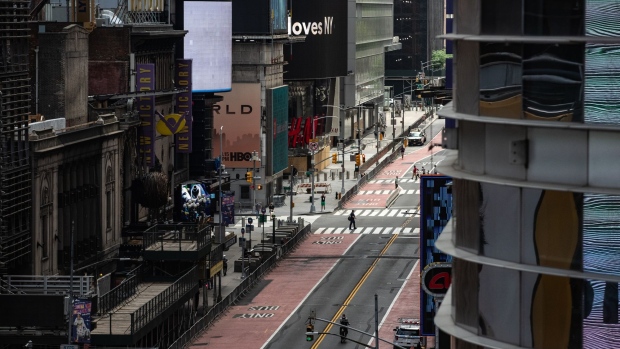
Asia Stocks to Track US Rebound on Profit Optimism: Markets Wrap
European stocks rose for a second day after strong earnings from some of the region’s biggest companies, while positive economic data helped boost sentiment.
Latest Videos
The information you requested is not available at this time, please check back again soon.

European stocks rose for a second day after strong earnings from some of the region’s biggest companies, while positive economic data helped boost sentiment.

Taylor Wimpey Plc is failing to see lower mortgage rates translate into higher levels of home sales and is maintaining its forecast for fewer deals in 2024.

Chinese mainland investors increased their portion of total turnover of Hong Kong stocks to a record daily average in April, with the latest measures to bolster the city’s position potentially boosting their purchases.

Zhao Xiaowei did what would have been unthinkable just a few years ago: He quit his Beijing barista job and returned to his northeastern rust-belt hometown for a better future.

South Korea is emerging as a closely watched weak link in the $63 trillion world of shadow banking.
Aug 5, 2020
, Bloomberg News

(Bloomberg) -- It’s been almost two months since Manhattan started to reopen, but the shoppers aren’t around.
Wealthy New Yorkers have decamped for the summer, or longer. Storefronts are boarded up in Soho, while the Times Square and Fifth Avenue sidewalks are quiet as a city devoid of office workers and tourists tries to regain its footing.
New York was already dealing with a glut of retail space -- and the pandemic is making it worse. Average asking rents in Manhattan, which have been sliding for years, plunged to the lowest level since 2011 in the second quarter, according to a report by CBRE Group Inc. Vacancies are growing in prime shopping districts, the firm said.
Then there are the bankruptcies. Brooks Brothers and Neiman Marcus Group Inc. are just two on the growing list of companies that have filed for Chapter 11, potentially adding to a glut of empty stores.
“It’s a nightmare,” said Tom Mullaney, managing director of restructuring at Jones Lang LaSalle Inc. “A lot of stores are going to disappear and never come back.”
Neiman Marcus to Close Its Store at Manhattan’s Hudson Yards
It’s easy to understand why Manhattan is hurting. Midtown’s office workers are at home, and many are expected to stay there for months. The same is true of international tourists, with a 40% decline seen this year, according to the Partnership for New York City.
In addition to national chains, the group estimated that as many as one third of the city’s 230,000 small businesses will close for good as restaurants and bars struggle to pay rent with social distancing sapping business.
“The restaurant scene supports so many pieces of New York City culturally, it’s very difficult to watch,” said Camille Renshaw, Chief Executive Officer of brokerage B+E. “So many people make money as they come up in the city through the restaurant scene. If that doesn’t exist, how do these folks survive?”
Legal Limbo
So far, landlords are trying to avoid price cuts as they wait for a rebound. Still, they’re losing patience amid pressure to make their own debt payments. Lawsuits are piling up as many tenants continue to withhold rent payments.
“It’s taken a turn for the worst,” Mullaney said. “The pace of which people are filing notices of default, lawsuits and trying to evict is accelerating.
Bankruptcies Rip Through U.S. Mall Tenants With No End in Sight
Vornado Realty Trust, a major New York landlord, recently said it wrote off $36 million in rent, including for the lease on J.C. Penney’s store at the Manhattan Mall.
“The retail environment is very difficult,” Michael Franco, president of Vornado, said in an earnings call on Tuesday. “We’ve taken our share of hits just like all the other retail landlords. Most retailers are focused on survival and few are focused on opening new stores.”
While some landlords are reaching deals to defer rent, it gets tricky when a tenant who defaulted on a lease refuses to leave. Boston Properties Inc. President Douglas Linde said recently that multiple tenants across the company’s portfolio of buildings, including in New York, have stopped paying rent but refused to give up the space, making it hard to get a new tenant.
Few Deals
With retail getting hammered, not many new leases are being signed. The growing vacancies could force landlords to turn to pop-ups, flexible lease arrangements and payment deferrals to find tenants, according to Jay Norris, CEO of Guesst, a digital retail platform.
“What’s happening in the city is basically a catalyst to what was going to happen down the road organically,” he said. “We’re in a great reset mode.”
©2020 Bloomberg L.P.